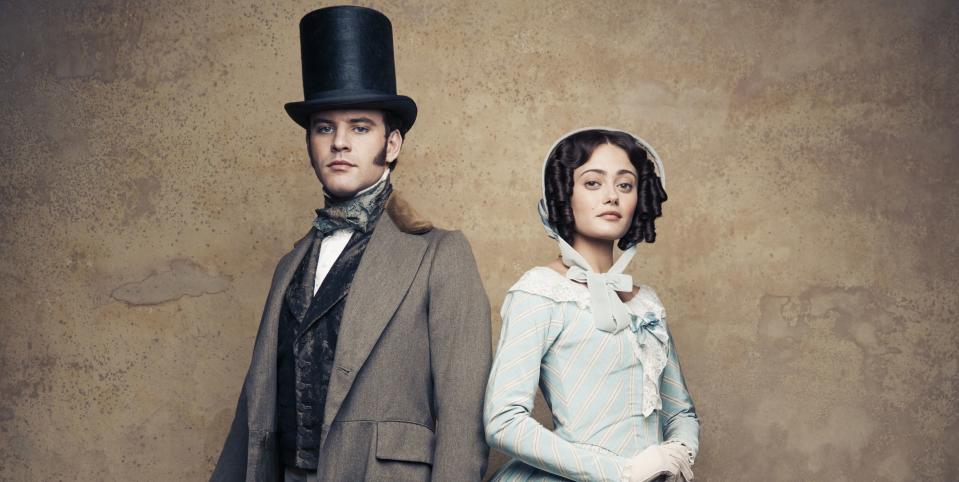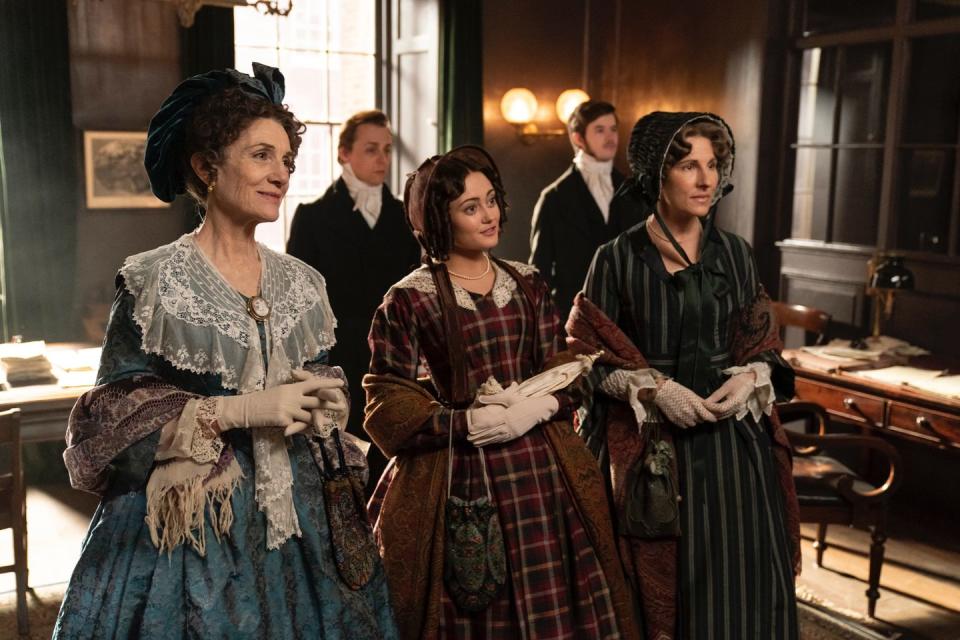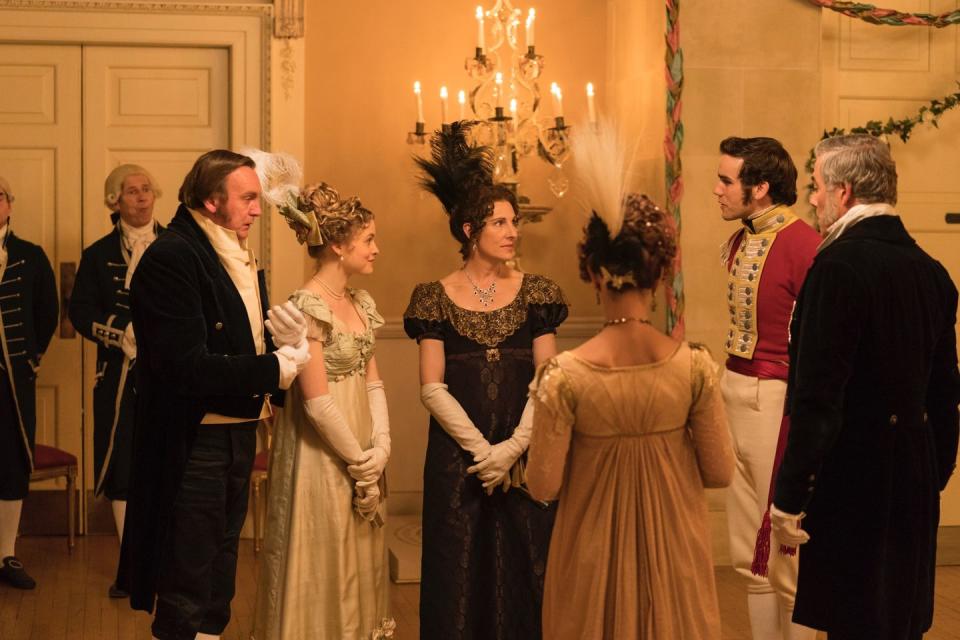How Julian Fellowes’ Downton follow-up Belgravia challenges period drama stereotypes

Belgravia may be resplendent with romanticised ball gowns and the indulgences of an afternoon tea, but Julian Fellowes' latest period drama isn't as saccharine or superfluous as the endless cakes and clotted cream enjoyed by the Victorian elite.
ITV's six-part drama - set in the upper echelons of London in the 1840s - delights with an unexpected dark twist and dismantles the stereotypes of a passive 'period drama woman' to give us dynamic leading female characters with agency.
Following in the footsteps of progressive-minded historical dramas such as BBC One's Gentleman Jack and Greta Gerwig's Little Women, the central women challenge the misogynistic conventions of their time, and Ella Purnell says her character Lady Maria Grey is a fine example.
"To read a period drama where my character's purpose wasn't simply to marry and breed was so refreshing," Purnell told Harper's Bazaar UK.
"I feel guilty for the lack of diversity and female stories being told, and I feel a responsibility to be mindful of the characters I play. I don't want to perpetuate any stereotypes or negative narratives about a woman's purpose.
"Julian writes women fantastically - he is a feminist, and the proof is in the pudding. You have such badass women in this - Alice Eve, Tamsin Greig, Harriet Walter and Tara Fitzgerald play such strong characters."

Purnell's Lady Maria unwittingly becomes embroiled in a scandal consuming Tamsin Greig's astute Anne Trenchard, and Harriet Walter's indomitable Lady Brockenhurst. Though the women are divided by class, they are united by grief and bound by a secret which threatens to destroy their reputations.
Maria is intelligent, well-read, cultured and can easily outsmart her male counterparts, despite the limited expectations of women in the 19th century.
"Maria can run circles around [her love interest] Charles Pope with her knowledge, and that's quite fun," the 23-year-old Ordeal by Innocence star continued. "There's lots of scenes with lots of the female characters where they're silently owning it over the men, whether the men realise it or not."
Meanwhile, creator Fellowes spoke of his great pleasure in devising complex female characters, and how he often sets his dramas within aristocratic society because that's where women wield power.
"I am a feminist because I believe in strong women," Fellowes told Harper's Bazaar. "I like watching them, I like writing them, I've grown up with them, and I married one. I often set things in society which was always controlled by women; it was never controlled by men. If you ever wanted to get into society it was women who let you in."
He ruminated: "Are the women in this ruthless? If you want to get something done there has to be an element of ruthlessness so that you don't get deflected from getting it done. It's hard to get things done if you're not singleminded."

Like Downton Abbey, Belgravia revolves around British high society and the mechanics of a household, but Fellowes didn't want this series to replicate the same Downton format.
Executive producer Gareth Neame elaborated that Belgravia exudes more emotion and mystery, and is far "less soapy" than its predecessor.
"It's a closed story, it has a beginning, middle and end, there's much more of a mystery to it, and it's not as soapy as Downton is," the Emmy and Golden Globe-winning producer and executive explained. "There's an emotional through-line because it's the story of these two women from different sides of the track who are united in grief with the idea that a woman loves a child for all time.
"It also has the comedy of manners, which is very much Julian's stock and trade, but it doesn't have the same dramatic structure as Downton at all."

There's also more bustle and vigour to the drama, Fellowes detailed, as Belgravia is set during a financial boom which sprung optimism and hope.
"It has a very different energy because Downton was the decline of that particular way of life and how it was going to adjust to the 20th century," Fellowes said. "The 1840s were the opposite of that - it was the boom of Victorianism which saw more people employed in domestic service in any time before or since.
"Trade was growing, market was growing, the empire was growing, and I think that does create a different feeling to it."
Whether we can expect more seasons like we did with Downton, which ran for six and culminated in a big screen adaptation, with a sequel currently in the works - Fellowes remains ambivalent, for now.
"For me, this is a completed story," he said. "Although whenever I say this to the actors, they disagree with me violently! So I'm not sure what the definitive answer to that. We'll have to see if anyone wants more."
Belgravia airs on Sunday, March 15 at 9pm on ITV.
Like this article? Sign up to our new newsletter to get more articles like this delivered straight to your inbox.
You Might Also Like

